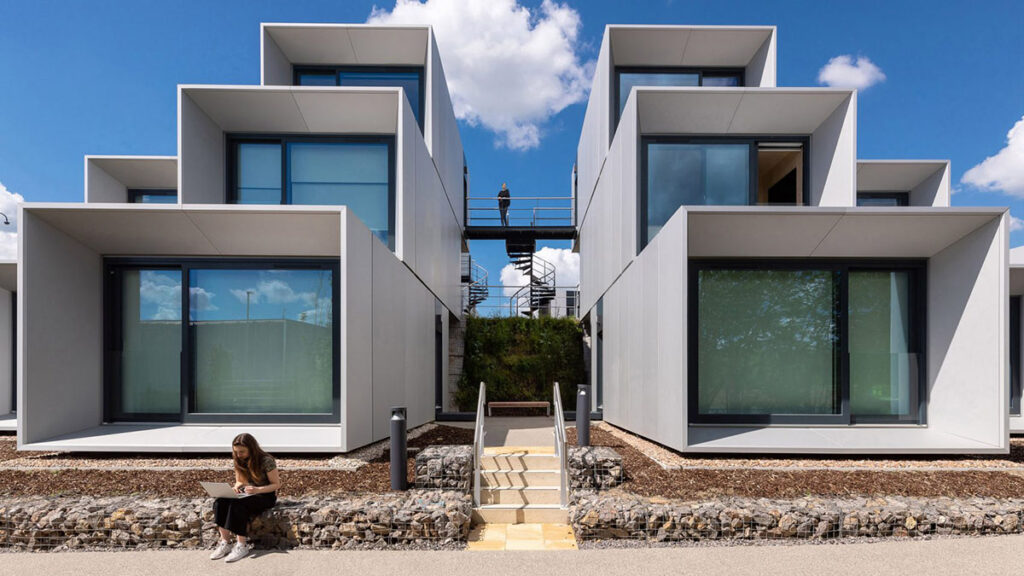
Ethical Considerations in Modular Construction Today
In recent years, the construction industry has witnessed a significant shift towards modular construction, a method that promises efficiency, cost-effectiveness, and sustainability. However, with these advancements come important ethical considerations that must be addressed to ensure that the benefits of modular construction are realized responsibly. This article delves into the ethical aspects of modular construction, providing insights for home enthusiasts and industry professionals alike.

Understanding Modular Construction
Modular construction involves prefabricating building sections, or modules, in a factory setting before transporting them to the construction site for assembly. This method offers numerous advantages, including reduced construction time, minimized waste, and enhanced quality control. To learn more about how modular construction works, you can visit the Modular Building Institute’s website.
The Importance of Ethical Considerations
As with any industry, ethical considerations play a crucial role in ensuring that modular construction practices align with societal values and environmental sustainability. These considerations include labor practices, environmental impact, and community engagement.
Labor Practices in Modular Construction
The construction industry, including modular construction, relies heavily on skilled labor. Ensuring fair wages, safe working conditions, and opportunities for skill development are essential components of ethical labor practices. It is vital for companies to adhere to labor laws and support the well-being of their workers.
Environmental Impact
One of the key benefits of modular construction is its potential to reduce environmental impact. By minimizing waste and using sustainable materials, modular construction can contribute to a more sustainable future. However, it is crucial to ensure that these practices are implemented consistently across projects. Learn more about how modular homes contribute to sustainability by exploring our article on climate-resilient modular housing.
Community Engagement
Engaging with the local community is an important aspect of ethical construction practices. Modular construction projects should involve community members in the planning process, ensuring that their voices are heard and their needs are met. This approach fosters a sense of ownership and pride among community members.
Challenges in Ethical Modular Construction
Despite the potential benefits, modular construction faces several ethical challenges. These challenges include balancing cost with quality, addressing potential job displacement, and ensuring equitable access to modular housing solutions.
Balancing Cost with Quality
While modular construction can be more cost-effective than traditional methods, it is important not to compromise quality for the sake of cost savings. Ensuring that materials and construction practices meet high standards is essential for maintaining the integrity of modular buildings.
Job Displacement Concerns
The shift towards modular construction may lead to concerns about job displacement within the traditional construction workforce. It is important for companies to offer retraining and upskilling opportunities to workers affected by this transition.
Equitable Access to Modular Housing
Ensuring that modular housing solutions are accessible to all segments of society is a key ethical consideration. Efforts should be made to provide affordable modular housing options for low-income families and marginalized communities.
The Future of Ethical Modular Construction
As modular construction continues to evolve, it is essential to prioritize ethical considerations to ensure a positive impact on society and the environment. By addressing labor practices, environmental impact, and community engagement, the industry can pave the way for a more sustainable and equitable future.
For further reading on the future of modular housing, you can explore our article on the future of modular housing.
Conclusion
In conclusion, ethical considerations in modular construction are vital for ensuring that this innovative building method contributes positively to society and the environment. By prioritizing ethical practices, the construction industry can harness the full potential of modular construction while upholding its responsibility to workers, communities, and the planet.

FAQ
What are the key ethical concerns in modular construction?
The key ethical concerns in modular construction include labor practices, environmental impact, community engagement, cost-quality balance, job displacement, and equitable access to housing.
How does modular construction benefit the environment?
Modular construction benefits the environment by reducing waste, using sustainable materials, and decreasing construction time, leading to a smaller carbon footprint.
What steps can companies take to address job displacement in modular construction?
Companies can address job displacement by offering retraining and upskilling opportunities to workers affected by the shift towards modular construction.
This article contains affiliate links. We may earn a commission at no extra cost to you.